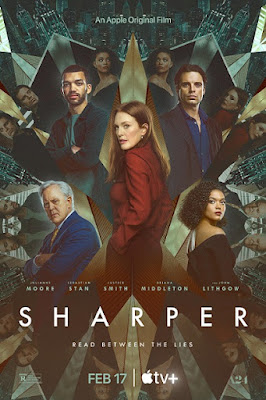Kate Garretson should have stuck with horses. All the animals at her stables seem nice and calm, but her daughter Claire is a real piece of work. Her father Richard has had enough, but her mother keeps giving her money and shielding her from the consequences of her mistakes. Unfortunately, that indulgence has deadly consequences in Michael Pearce’s Echo Valley, which premieres today on Apple TV+.
Garretson has neglected the stables since the untimely death of the wife she left arrogant old blue-blooded Richard for. He has given up on Claire, but he still gives his ex “loans” for barn repairs. We are supposed to dislike him, but he is remarkably generous to his ex-wife, especially given the circumstances—and totally right with respects to Claire’s ungrateful, anti-social behavior.
Yet, again the prodigal daughter returns home, but this time her creepy dealer Jackie Lawson follows her. Garretson is sufficiently country to ward him off the first time. The next time Claire comes home, Lawson soon follows again, but this time he has the upper-hand. Thus begins the cat-and-mouse game, which constitutes the guts of the film.
It is easy to lose patience with this film and its major characters. They are whiny, make horrible decisions, and their potential identity box checking clearly was prioritized over wit or uniqueness. However, Brad Ingelsby’s screenplay shows sudden third act signs of life, when the momentum between the two antagonists starts to shift back and forth.
Admittedly, Julianne Moore puts on a master class projecting Garretson’s still raw bereavement (bordering on depression) and her mama bear protective drive. After the first stilted scene with her ex-husband (another thankless appearance for Kyle MacLachlan), every second she is on screen rings true.






